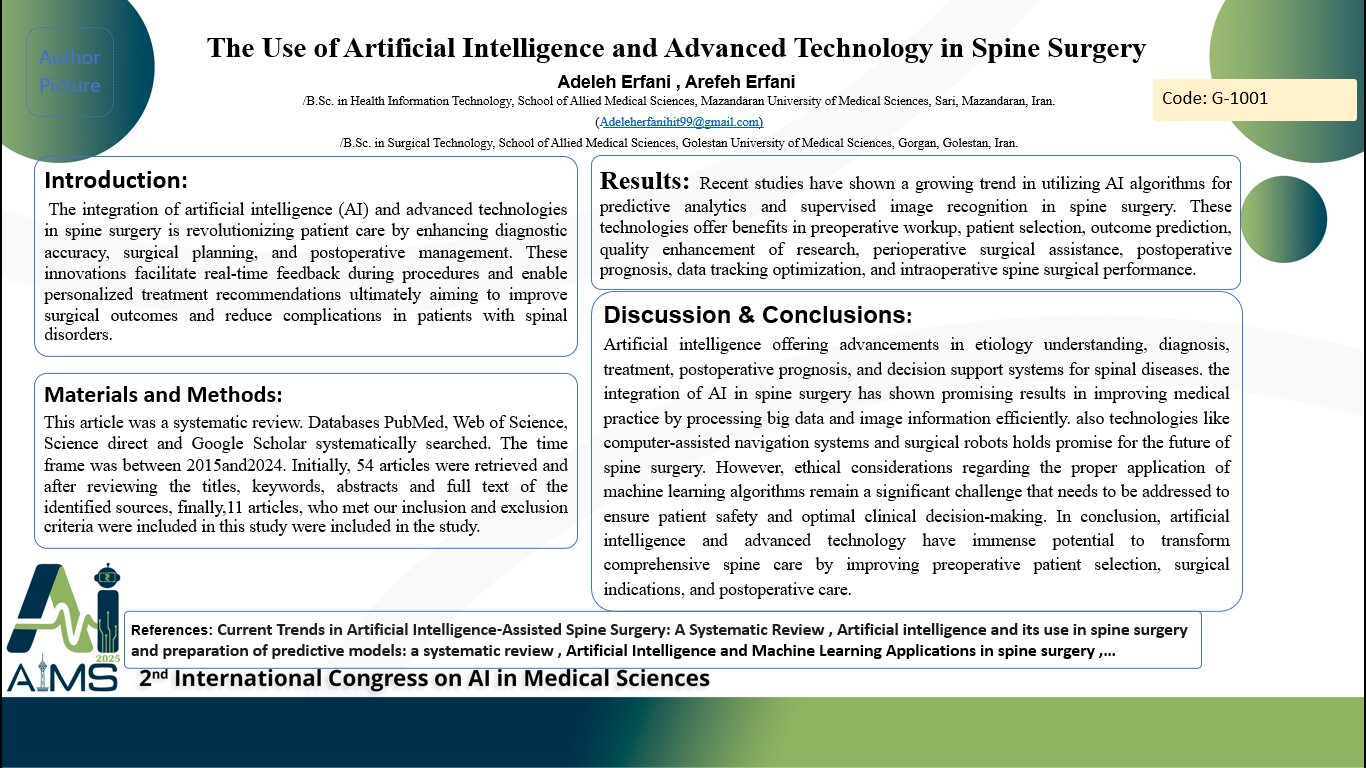The Use of Artificial Intelligence and Advanced Technology in Spine Surgery
Code: G-1059
Authors: Adeleh Erfani *, Arefeh Erfani ℗
Schedule: Not Scheduled!
Tag: Clinical Decision Support System
Download: Download Poster
Abstract:
Abstract
Background and aims: The integration of artificial intelligence (AI) and advanced technologies in spine surgery is revolutionizing patient care by enhancing diagnostic accuracy, surgical planning, and postoperative management. These innovations facilitate real-time feedback during procedures and enable personalized treatment recommendations ultimately aiming to improve surgical outcomes and reduce complications in patients with spinal disorders. Method: This article was a systematic review. Databases PubMed, Web of Science, Science direct and Google Scholar systematically searched. The time frame was between 2015and2024. Initially, 54 articles were retrieved and after reviewing the titles, keywords, abstracts and full text of the identified sources, finally,11 articles, who met our inclusion and exclusion criteria were included in this study were included in the study. Results: Recent studies have shown a growing trend in utilizing AI algorithms for predictive analytics and supervised image recognition in spine surgery. These technologies offer benefits in preoperative workup, patient selection, outcome prediction, quality enhancement of research, perioperative surgical assistance, postoperative prognosis, data tracking optimization, and intraoperative spine surgical performance. Conclusion: Artificial intelligence offering advancements in etiology understanding, diagnosis, treatment, postoperative prognosis, and decision support systems for spinal diseases. the integration of AI in spine surgery has shown promising results in improving medical practice by processing big data and image information efficiently. also technologies like computer-assisted navigation systems and surgical robots holds promise for the future of spine surgery. However, ethical considerations regarding the proper application of machine learning algorithms remain a significant challenge that needs to be addressed to ensure patient safety and optimal clinical decision-making. In conclusion, artificial intelligence and advanced technology have immense potential to transform comprehensive spine care by improving preoperative patient selection, surgical indications, and postoperative care.
Keywords
Artificial Intelligence, Spine Surgery
